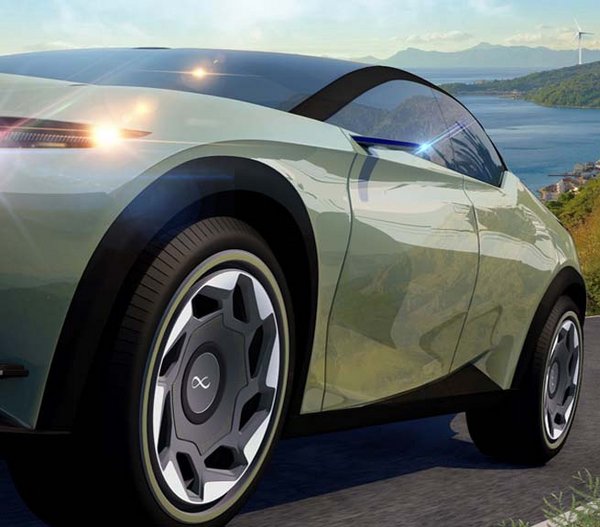E-mobility drives demand growth for aerodynamic, sustainable wheel designs
Maxion Wheels highlights the alternative materials and innovations that will give future EV buyers carbon-neutral wheel options

Munich, Germany, 6 July 2022 – New mobility and sustainability are changing wheel design and driving innovation advances at Maxion Wheels. Speaking at the 2022 Chassis Technology Symposium in Munich, Vice President Global Engineering, Ralf Duning, explained how e-mobility and carbon neutrality strategies are transforming car design, automotive engineering, and wheels.
Innovation work by Maxion Wheels has earned the company an early lead in New Mobility, working closely with advanced R&D teams and winning major EV programs.
Future mobility requires wheel options that are both aerodynamic and sustainable. The latest wheel designs for EVs demonstrate a growing trend for innovation and alternative materials. Supercomputer-powered design and low-carbon materials will provide the advances needed to make wheel production carbon neutral.
“As the only supplier offering a full range of aerodynamic steel and aluminum wheel options, Maxion Wheels is leading the evolution of wheel designs for future EV programs,” said Duning. “Technology transfer between aluminum and steel wheels is resulting in a new generation of electric vehicle (EV) wheels that combine style, aerodynamics and a near-zero carbon footprint.”
Aerodynamic wheels help maximize battery range by 3-5%, reducing drag by replacing open vents and spokes with closed discs and flat, smooth surfaces. Today, most designs achieve this by combining plastic inserts or covers with a base wheel made of cast aluminum. Carbon reduction strategies, however, are leading many designers to re-evaluate steel wheel options.
Steel wheels have a carbon footprint that is typically 70% lower than aluminum. Steel wheels also offer a more straightforward route towards carbon neutrality through the sourcing of green or recycled steel and renewable electricity.
Lightweight steel wheels with aerodynamic covers are a likely solution for electric city cars. There is also interest in styled steel wheels as a more environmentally friendly alternative to aluminum wheels. Work is underway at Maxion to enable steel wheels to match the design freedom of aluminum.
“Parallel advances in simulation tools, supercomputers, production techniques and data at Maxion Wheels have been pushing steel wheels forwards,” said Duning. “Larger diameter steel wheels are already viable. Innovation work with car designers seeking to build the most efficient, sustainable EV possible are sparking fresh interest in understanding steel’s true potential.”
As part of its ROADMAP ZERO strategy to support the decarbonization of mobility, Maxion Wheels is removing CO2 emissions from its production processes and developing lightweight product designs. The company is on course to reduce carbon emissions from its operations by 70% by 2030, with 90% of its electricity sourced from renewables.
